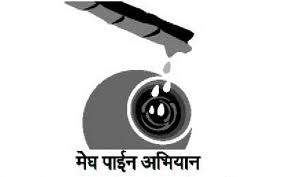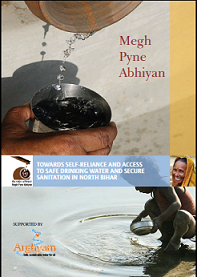
The report divided into 3 sections, begins with an overview of the regions problems, the recurring flood, the setbacks caused by them and how the existing flood management system has exacerbated the crisis, deepening poverty levels. It also looks at the drinking water, sanitation and agriculture problems caused by these periodic floods.
Section I, comprising of 2 chapters, illustrates the irony that though rivers overflow and the lands are saturated with water during monsoons, there is  a severe shortage of drinking water. It talks about the government flood management policies, which have intensified the crisis and worked to the detriment of the region and its people. It also elaborates on the colossal human tragedy that follows the monsoons, how thousands of people perish every year along with their livestock, standing crops are lost, huge tracts of land remain water-logged for months and epidemics break out.
a severe shortage of drinking water. It talks about the government flood management policies, which have intensified the crisis and worked to the detriment of the region and its people. It also elaborates on the colossal human tragedy that follows the monsoons, how thousands of people perish every year along with their livestock, standing crops are lost, huge tracts of land remain water-logged for months and epidemics break out.
Section II chalks out how Megh Pyne Abhiyan, literally cloud’s water campaign, begun in 2006, uses long term planning of sustainable water management as its initial plank for ecological, economic and social regeneration. Also MPA aims, approach, organisational structure and allies are discussed in depth.
Section III aims to capture MPA forays into its operational areas in depth and shows the need for tying them into a circle of continuum. It highlights the success stories, how MPA overcame resistance to its initiatives, and its efforts to be an alternate model of development. It talks of their innovations, their attempt to document traditional water management practices, and struggles to anticipate emerging threats. It also gathers oral testimonies of people in the region, recording their response to their campaign.
The final section pulls together the discrete campaign elements, looks at good practices and future plans. It throws light on MPAs successes, as well as the core challenges it faces and its burgeoning partnerships. It describes how the campaign is moving forward by evolving a framework, to be made operational through a set of key processes, that will enable people to make decisions about their concerns.
Click here to read the complete report
Click here to read more about Megh Pyne Abhiyan





 megh_pyne___main_report___english_1.pdf
megh_pyne___main_report___english_1.pdf







